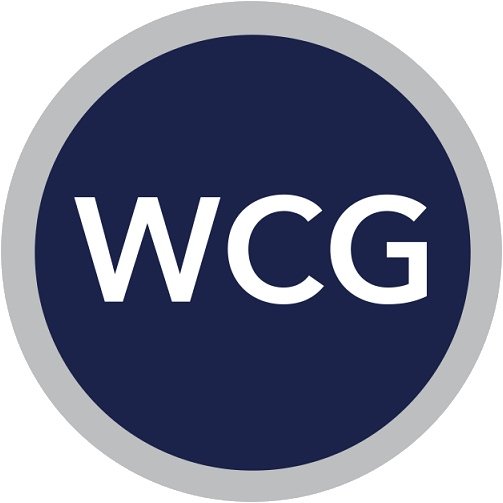Simplify the Job Search Process: 6 Tips to Help Maximize Your Time!
Searching for a job is never easy, and rarely, if ever, will there be a moment in your life when you feel you have the time to adequately devote to it. Someone once told me that searching for a job is a full-time job in itself. I’m not sure about you, but I don’t have 40 weekly hours to spare. If you’re like me - kids, a house, dogs, the whole nine yards - you are dreading fitting it into your already busy schedule.
The job search itself can be overwhelming, and evoke some strong feelings. After graduating with my Master’s, I remember staring at my computer for hours while scouring the internet for available positions, and feeling defeated when I had little to show for it. There was a lot to consider when job hunting - salary, location, career goals, work culture, experience, education requirements, job expectations...and the list went on and on.
It was easy to lose myself in the process, but through plenty of trial and error (and some wise words from more senior professionals), I discovered various methods that significantly helped simplify the job search, saving me immense amounts of time.
Because let’s be honest. Sometimes, 2 hours is all you have to give, so it becomes about quality with what time you do have.
Optimizing Your Time While Searching For A Job
The following are six tips to help optimize time during the job search process.
1. Develop a job search plan.
Step 1. Get awesome job.
Step 2. Enjoy success!
I wish it were that easy, but you’ll want to take the time to draw out a detailed job search plan, including how you’ll track your progress. Searching for a job can be a difficult experience, making motivation a crucial factor. Tracking progress allows you to recognize growth, make adjustments as needed, and can motivate you to succeed. It’s also easy to get confused about which jobs you’ve applied for, where you are in the process, and so forth. Utilizing a tracking system significantly reduces wasted time, while simultaneously improving your sanity.
You can build your own tracking system using Google Sheets or Microsoft Excel, with essential formation such as:
Job Links
Locations
Hiring manager contact information
Important dates (i.e., application due date, last contact)
Salary information
Follow-up information
LinkedIn’s Glazer also mentions the importance of using your plan to outline goals, identify target industries, and research potential job titles. Another way to maintain motivation during the job search is to have measurable and manageable goals.
Measurable goals will help keep you from making vague statements like “locate new jobs on LinkedIn” that can be overwhelming and provide little to no direction. If instead you try something like, “reach out to 5 recruiters on LinkedIn by end of week,” you can set a realistic goal for yourself that provides a direct roadmap for success and lets you see progress.
Identifying target industries also allows you to research where candidates typically apply for positions, further eliminating time spent on unnecessary resources. There is seemingly a limitless amount of job search websites, including generic job search engines like LinkedIn, Glassdoor, and Indeed. While great resources, some companies choose not to use them due to cost, or due to the exhaustive number of applicants.
Madell recommends identifying a few key sites with reliable listings based on industry or area of interest. If you were interested in primarily nonprofit positions, prioritizing sites that cater primarily to that interest, like Idealist and NPCrowd, might prove beneficial.
Lastly, it’s important to identify different job titles that might yield favorable results. One of the quickest methods I have found is to search the desired job title without any geographic preference, taking note of similar titles used across industries. If you’ve identified target companies, check out what titles they’ve used in job postings, as well as their competitors.
If you still aren’t sure where to begin in creating your plan, consider meeting with The Wilbanks Consulting Group career consultants to develop a customized job search strategy. Utilizing the S.M.A.R.T. strategy (Specific, Measurable, Achievable, Relevant, Time-bound), one of our team members will meet with you one-on-one and provide the tools essential to have when trying to make a career change.
2. Prep your job application materials.
Regardless of where you are in your career, it’s always a good idea to have application materials ready. Not only could an opportunity present itself when you least expect it, but an unwelcome surprise might also have you job searching sooner than thought. Alison Doyle from Career Tool Belt recommends keeping your resume and LinkedIn profile current as it will not only make you a stronger candidate, but also save you a lot of time.
If your application materials are out of date, I strongly advise a refresh before starting your job search, even if it’s just a casual search. You could find the perfect job posting with a fast approaching deadline, be forced to scramble a resume together at the last moment, or even worse, miss the opportunity entirely.
And if you don’t have the time or are feeling overwhelmed, our team of career consultants at The Wilbanks Consulting Group are here to help. We will learn about you as a candidate, your experience, and your goals; and from that we design and optimize your resume/CV, cover letter, and LinkedIn profile based on industry-specific keywords and current trends.
3. Customization is crucial, but keep it simple.
It’s never advisable to submit identical application materials to different employers. As someone with years of experience in reviewing resumes and cover letters, I can assure you it is easy to recognize repackaged application materials where candidates have simply copy and pasted the company name. Hiring managers are no different, with a keen ability to spot those who put effort into the process.
Image by Innova Labs from Pixabay
Even more of a concern is ATS, or Applicant Tracking System, software that electronically scans thousands of resumes, sorting them based on keywords in the job description. Using templates or repackaged application materials puts your documents at risk for not passing through ATS software, as required keywords are absent.
Robin Madell from FlexJobs recommends customizing each cover letter and parts of the resume to an individual employer. I know it can seem daunting to customize your application materials to every single employer, but I assure it’s worth it. And if you narrowed down your search at the start, you will have more time from focusing on a smaller, but better-suited pool of opportunities.
Our team at The Wilbanks Consulting Group encourages clients to spend at least 15 minutes tailoring their resume to each position. You don’t need to construct an entirely new resume, but integrating keywords and phrases from individual job postings will increase chances of passing ATS software, as well as help hiring managers connect your experience and skills to the position.
Creating a new cover letter for each position might seem like a lot of work, but there are ways to simplify it. Madell recommends creating a cover letter template as a foundation, then adjusting wording to connect it to a specific position. Cover letters can be extremely valuable as they draw attention to your most highlighted accomplishments, but can be daunting to write when you’re trying to convey decades of experience into a few short paragraphs.
The Wilbanks Consulting Group can craft you a one-of-a-kind cover letter, working closely with you to best capture who you are as a professional. Tailoring it to a specific position, we use evidence-based language and keywords to convey confidence to key decision-makers.
4. Utilize online tools.
The pandemic did not result in many positives, but one was the increased focus placed on online tools that can be of value during the job search. While this list is by no means exhaustive, the following are several online tools job seekers use to simplify the process:
Glassdoor hosts anonymous reviews from current and previous employees, giving you the ability to make better informed career decisions.
Grammarly works alongside your email, social media, and any other app you use to make sure your writing is mistake free. It’s a great way to check for errors on cover letters, or get suggestions on how to strengthen writing.
LinkedIn is an obvious one to share, but it is also vastly underutilized by many job seekers. There are a ton of helpful features including the “Featured” section, where you can prominently display media, blogwork, a portfolio, and more.
Jobscan Resume Scanner is an online keyword analysis tool that compares your resume to a specific job posting, informing you on how to optimize your resume to better pass through ATS software.
Personal CRM (client relationship management) systems such as Asana, Hubspot, Google Sheets, Dex, and Monday are great tools to organize personal data, quickly sort contacts, and set up reminder notifications.
Google might seem like another obvious tool to list, but it hosts a ton of tools that can be helpful to job seekers. Not only does it have a solid job search function, but the calendar integrates nicely with email, and Google Drive is a simple storage tool to help protect your application materials.
There are a ton of online tools that may be useful to you during (and even after!) your job search. Most have free options, or at least free trials allowing you to test premium features before opting in.
5. Look ahead.
While the bulk of your focus should be on finding a job, there are several areas to consider now while you’re in the planning phase. Many years ago while in my graduate studies, I was suddenly approached by a hiring recruiter about a post-graduate position. While my resume and cover letter were sharp, I was ill prepared to interview without any professional outfits ready or the required time to locate one. I did the best I could to “dress-up” a casual dress, but it was a big hit to my confidence before the interview even began.
Here are a few others ways you may not have considered that could be true time-savers towards the end of your job search:
Contact your references now. Don’t wait until a hiring recruiter asks for your references, you’ve yet to contact them to alert them, and one of your references is nowhere to be found. Now you’re left scrambling to find a suitable reference, rather than using the best!
Be interview ready. Have outfits planned, visually checking items occasionally to ensure their readiness. If you prefer to be groomed in a certain manner, stay up to date to avoid last minute beauty disasters.
Review interview questions. While job searching, a recruiter or hiring manager may at any time ask you an interview-like question, so it’s best to be prepared by reviewing common interview questions, and practicing your response. You should be able to quickly and easily explain what you do, who you are as a professional, strengths/weaknesses, and what you can bring to the company. The Wilbanks Consulting Group can work with you on interview preparation, and even prepare a customized mock interview with live feedback from a career consultant.
Be ready to resign your current position. Know company policies on resignation, including what might happen to any benefits you have including vacation time, health insurance, and retirement plans. You don’t want any unwelcome surprises during the transition.
Know your worth. In working with clients over the years as a career consultant, I often find many don’t know their true value, both monetary and skillset. Conduct research on what professionals of similar experience levels make, given the desired title. Also understand what makes you a unique candidate, and be able to convey it with confidence.
When all else fails, consult a professional.
Still feeling overwhelmed? I get it. Whoever the wise individual was that told me ”searching for a full-time job is a full-time job” was right, at least sort of. If done correctly, the job search process, like any successful project, will likely take some extra elbow grease and yes, some extra time.
Job searching can be complicated, so consider having the team at The Wilbanks Consulting Group take a large portion of the job search process off your hands. From job search strategy, to resume design, salary negotiation, and everything in between, one of our career consultants will meet with you for a free 30-minute consultation, customizing a career package based on your unique needs!








